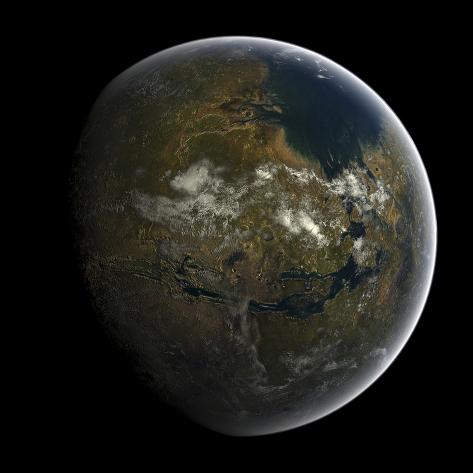Which could also mean life took a trip from Mars to Earth and got it all started...
I hope Curiosity can find some hard evidence of past life, even if microscopic. How amazing would it be if it takes a picture of a fossil since it's sitting in a sea bed that has layers stripped off.
What if it finds....
us?







